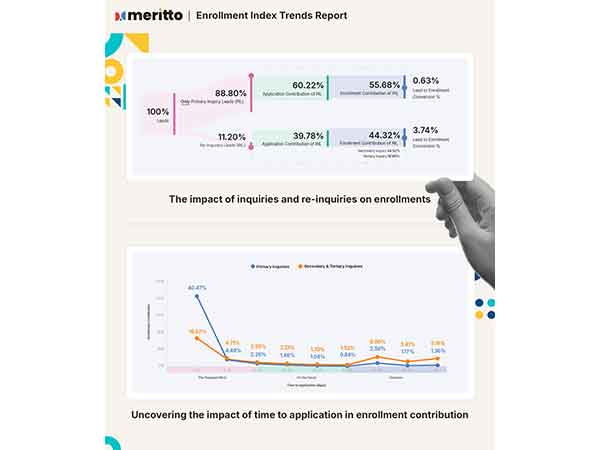RBI Dy Governor Rajeshwar Rao highlights role of technology and AI in banking at IEA conference
Jan 01, 2024

New Delhi [India], January 1 : M Rajeshwar Rao, Deputy Governor of the Reserve Bank of India (RBI), delivered a virtual address on December 22, 2023, at the 106th Annual Conference of the Indian Economic Association (IEA) in Delhi.
The focus of the speech was on innovations in banking, emphasising the evolving role of technology and artificial intelligence (AI) in shaping the financial landscape.
Deputy Governor Rao commenced his address by acknowledging the pivotal role banks have played in supporting the growth of the Indian economy.
Rao said, "The banks have played an extremely important role in supporting the growth story of the Indian economy. If we were to analyse the evolution of the Indian banking sector over the last five decades, we could classify this evolution into three distinct phases - post nationalisation, liberalisation, and the third and current phase, which we could term democratisation."
The nationalisation of banks significantly widened the banking reach, leading to the opening of branches across the country, mobilising deposits, and promoting credit growth for priority sectors.
Globalisation and integration during this phase transformed financial intermediation, allowing private entities to enter the banking sector.
The period witnessed substantial growth in both deposits and credit, driven by economic reforms and technological adoption.
Rao said, "This democratisation of financial services got a major push through the Pradhan Mantri Jan Dhan Yojana and direct benefit transfer (DBT) scheme, along with the proliferation of mobile and telecom services. I would not be off the mark when I say that this phase has been a perfect combination of demand-pull and supply-push models working in tandem."
He added, "Today, we are witnessing the unfolding of true democratisation of financial services, where customers are greatly enabled to make informed choices among the suit of available financial products offered by banks and other financial service providers."
The current phase, democratisation, focuses on financial inclusion, increased financial literacy, and consumer protection.
This phase has seen a massive expansion of banking outreach, especially to previously excluded sections, facilitated by innovative delivery models and government schemes like Pradhan Mantri Jan Dhan Yojana and direct benefit transfer.
Deputy Governor Rao highlighted the increasing importance of non-bank financial companies, microfinance institutions, and market instruments.
These entities, along with banks, have significantly contributed to the democratisation of financial services by expanding credit penetration across the country.
India's remarkable progress to become the fifth-largest economy and its aspirations to become the third-largest by the next few years were acknowledged.
Deputy Governor Rao emphasised the RBI's developmental mandate alongside its traditional central banking functions.
Rao said, "While we are discussing the role of banks in India's economic journey, let's not lose sight of the contribution and the increasing importance of other financial intermediaries. Although bank credit remains the dominant mode for meeting the growing credit needs of commercial and household sectors, the share of non-bank financial companies, microfinance institutions and, of late, market instruments has also been increasing."
"Non-banks, through their innovative delivery and appraisal methods, have further expanded the penetration of credit across the geographical length and breadth of the country. They have, along with banks, contributed immensely to this journey of democratisation of financial services, he added.
Rao provided insights into India's advanced payments system, citing examples like UPI's success, which facilitated approximately 83 billion transactions valued at around Rs 140 trillion during the fiscal year 2022-23.
He also mentioned the RBI's leadership in Central Bank Digital Currency (CBDC) initiatives.
Rao said, "For the next phase of development of our financial architecture to support the aspirational growth of a rapidly growing economy, the RBI is creating world-class financial infrastructure. Let me cite a few examples. Today, India has one of the most advanced state-of-the-art payment systems that is affordable, accessible, convenient, fast, safe and secure."
"Our payment infrastructure caters to the needs of a diverse group of consumers and offers a wide array of options for executing all types of transactions. This has led to a revolution in banking and financial services, making banking truly 'anytime, anywhere'. Everyone is aware of the success of UPI and the convenience it offers," Rao added.
He stated, "UPI symbolises the ultimate democratisation of a financial product that is available to everyone, including customers who may not have smartphones, as well as for undertaking offline transactions. To put things in perspective, during FY 2022-23, UPI facilitated about 83 billion transactions with an approximate value of Rs140 trillion. This is roughly 43 per cent of the total value of retail payment transactions."
Deputy Governor Rao delved into the adoption of AI in the banking sector, categorising AI models into traditional and generative AI (GenAI).
While traditional AI models are task-specific, GenAI possesses general intelligence comparable to human cognitive abilities.
He acknowledged global experiments in deploying AI in back-office tasks, compliance management, customer-facing processes, and more.
Expressing a cautious approach, Deputy Governor Rao flagged concerns related to AI adoption in banking, including biases, robustness issues, governance challenges, and transparency concerns.
He outlined ten aspects that financial institutions should consider while deploying AI, emphasising fairness, transparency, accuracy, and human oversight.
Deputy Governor Rao emphasised the need for a supportive regulatory framework, robust governance, and clear accountability when deploying AI in high-value decision-making.
He called for a collective effort to embrace technological evolution responsibly, ensuring that technology serves as an enabler for society at large.


















